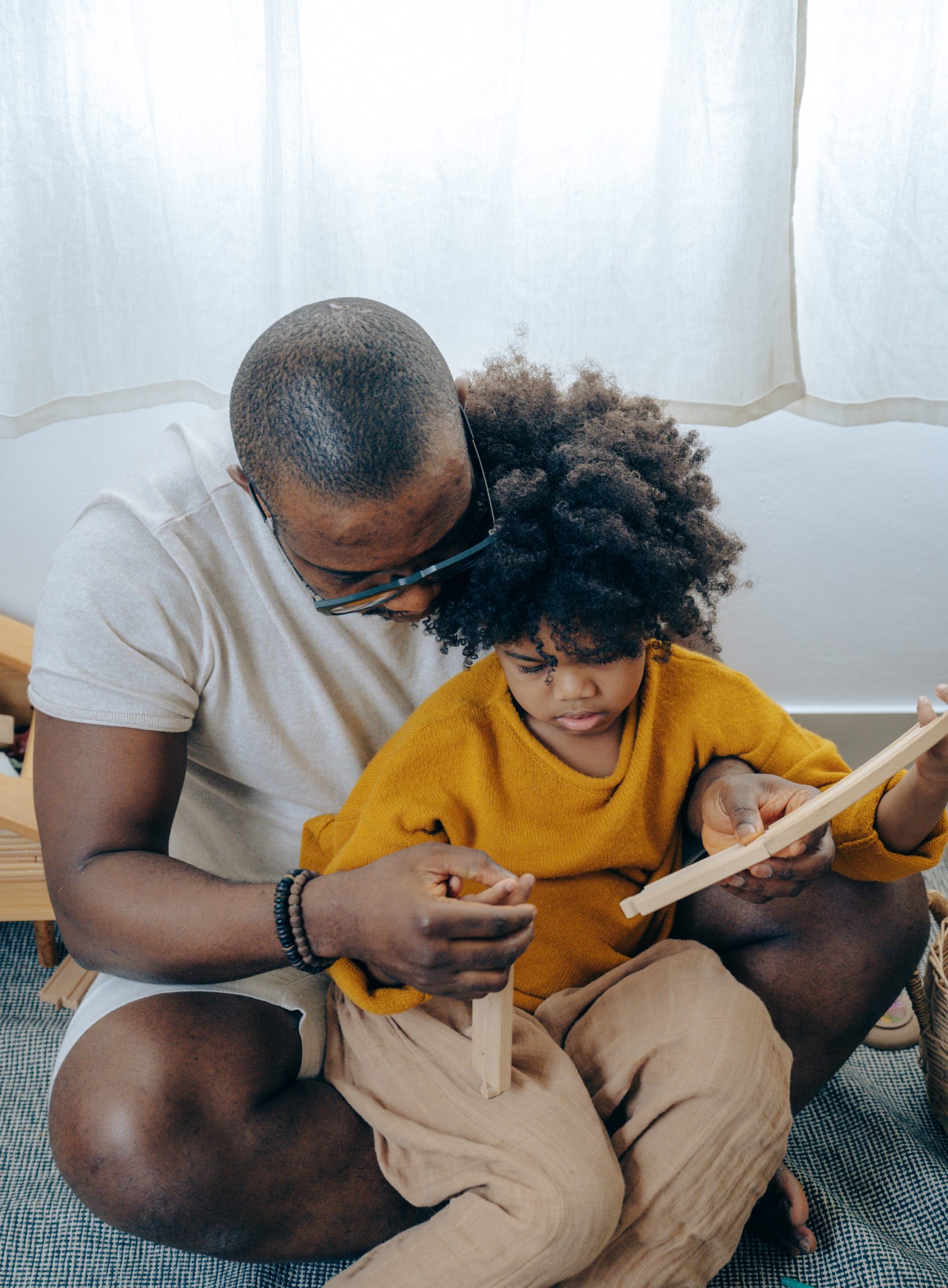Features
Why Nigerian Parents Need to Learn How to Apologize! Hint* It Won’t Kill You
Your kids may be all grown-ups, married with kids of their own, but may still harbour certain resentments for things you did/said to them when they were young. It’s time to reconcile. If your relationship with your children is sour, or not-so-good, then it is time to apologize and mend your relationship with them.
 Many Nigerians have a story of how their parents, instead of apologising after offending them, decided to bribe them with jollof rice, chocolate, ice-cream, a hug, being extra friendly or sober, or any other thing they can apologise with – without saying the words ‘I’m sorry’.
Many Nigerians have a story of how their parents, instead of apologising after offending them, decided to bribe them with jollof rice, chocolate, ice-cream, a hug, being extra friendly or sober, or any other thing they can apologise with – without saying the words ‘I’m sorry’.
It is common knowledge that (many) Nigerian parents will do any other thing to seek your forgiveness except openly admitting that they were wrong and apologising for offending you.
First, let’s explore a few ways Nigerian parents apologise:
Are you still angry?
This particular question is very annoying, not just because it is rhetoric – obviously, you are still angry – but because they still won’t apologise when you say “yes, I’m angry”. Instead, many will say “you don’t have to be angry”. So why did they ask?
Is that why you’re squeezing your face?
“No that is not why, I just like my face squeezed”?.
Oya come and eat, I cooked your favorite food
For many Nigerian parents, food is the solution to everything. They don’t mind going out of their way to cook orisirisi delicacies for you – just so they won’t say ‘sorry’.
I was just correcting you
No ma/sir, you were wrong. Just say you’re sorry!
Come and take…
Ice cream, meat pie, new shoe, fine cloth, chocolate, a hug, new make-up kit, correct owambe material – whatever they can use to woo you.
Sorry na
Don’t be deceived by the word ‘sorry’. Many parents are not genuinely sorry. The sorry na is said playfully. It is equivalent to saying “I don’t know why you’re still angry sef, what I did is not so bad”.
These, and many more gimmicks point out one fact – many Nigerian parents don’t know how to say “I know I wronged you, I’m sorry”. They’ll rather trek from Lagos to Abuja.
As funny and ‘little’ as these things are, they are capable of causing long-lasting damage to parent-children relationships. That false accusation and the thorough beating that followed will be forever etched in the memory of your child(ren). Those words you said – and you refused to apologise for – will still be remembered in 20 years.
What The Lack of Apology Does To A Child
Resentment. An unforgiving heart. A broken/mentally unhealthy child.
A lot of children grew up having deep resentment for their parents. The only thing binding their relationship is that they are related by blood. They are family. Many Nigerian children love their parents because “they gave birth to me”, “no matter what, they are still my parents”. This kind of love comes from a sense of responsibility and duty to one’s parents.
Many Nigerian parents abuse their children so much and then become shocked when the child grows up, becomes distant, and refuses to come back home.
Ola (not real name) once talked about how he got his dream job and was scared of losing his job in the first month because his father’s voice kept echoing in his mind. He kept hearing things like “you cannot do anything right”, “you’re just dumb and useless”.
This is the story of many Nigerians today.
Not apologizing to your children when you offend them is telling them that they are not deserving of your apology or respect. If your kids are still young, you are indirectly teaching them to internalize abuse and accept to be mistreated, not just by you, but by other people too.
When it comes to building a good relationship with children, a lot of Nigerian parents need to do better. You need to be able to have certain discussions with your children, admit that you don’t know it all, and accept your fault when you are wrong. Saying ‘I’m sorry’ to your kids will not empty your bank account neither will it unseat you as the authoritative figure in the home.
Why You Need To Apologise To your Children
You’re creating a better bond
Apologizing to your kids helps you mend broken relationships, strengthens the bond you have with your children, helps you earn their trust, and reduces any resentment they may have harbored through the years. Not owning up to your mistake can create a sense of deep loathing in them and make them hate you. They may not be able to say this to your face when they’re young, but as they grow, they make sure that they have little to do with you.
You’re giving them a sense of identity
Apologizing to children boosts their confidence and gives them a better sense of identity. One way to teach children who they are, what they are made of, what they should/shouldn’t accept is to let them know when you are wrong, and apologize for mistakes you have made. That way, you are telling them that you are sure of their ability to do certain things, say certain things, or make certain decisions. A lot of children grow up unsure of who they are. They undermine their values and are scared of speaking up even when they are right. You can correct this by teaching them to say their mind. Even as adults, we sometimes get our validation from other people, and apologizing to them when you offend them is a way to acknowledge and validate their emotions and feelings.
You’re teaching them to stand up for themselves
When you do not apologize to children, you are indirectly telling them that they are undeserving and unworthy of your apology. This is the energy they will expect from other people when they begin to explore the world. For them, it’ll become a case of ‘who am I to demand an apology from Niyi?’ This means that they cannot defend themselves or stand up to those who wrong them. We have a lot of timid adults who accept every trash thrown at them. In some cases, the problem is from the home and the abusive environment in which they were raised.
You’re teaching them to be forgiving
When you apologize often to your children, you expect them to do the same when they are wrong. Kids learn a lot from the actions of their parents. It also teaches them to be empathetic and recognize that everyone makes mistakes. That way, they also become forgiving. Apologizing to your kids makes them realize that ‘mummy and daddy are not always right. They make mistakes too’. That way, they don’t try to be perfect for others or expect perfection from anyone.
How To Apologise To Your Kids
- Acknowledge that you were wrong: This is simple. You can just say “I made a mistake, I shouldn’t have done it this way or reacted that way.”
- Then apologize: “I apologize for saying those words/hitting you/accusing you wrongly/embarrassing you – or whatever you might have done wrong.”
- Don’t say “sorry o”: Saying “sorry o, sorry na, shebi I have begged” is not proper apology. Let’s be guided.
- You can make a promise: “I won’t do it again. Or, I promise to do better next time.”
- Then decide how you want to make amends: “Now that we’re here, this is what we can do to make the situation better. “
- Moving forward: “Henceforth, this is how we will handle such situation. This is what we will do differently.”
- A big fat hug: You can go ahead to hug each other or buy them a gift.
Remember that you can apologize for the things you have done in the past. Your kids may be all grown-ups, married with kids of their own, but may still harbour certain resentments for things you did/said to them when they were young. It’s time to reconcile. If your relationship with your children is sour, or not-so-good, then it is time to apologize and mend your relationship with them.
Photo by Ketut Subiyanto from Pexels





















